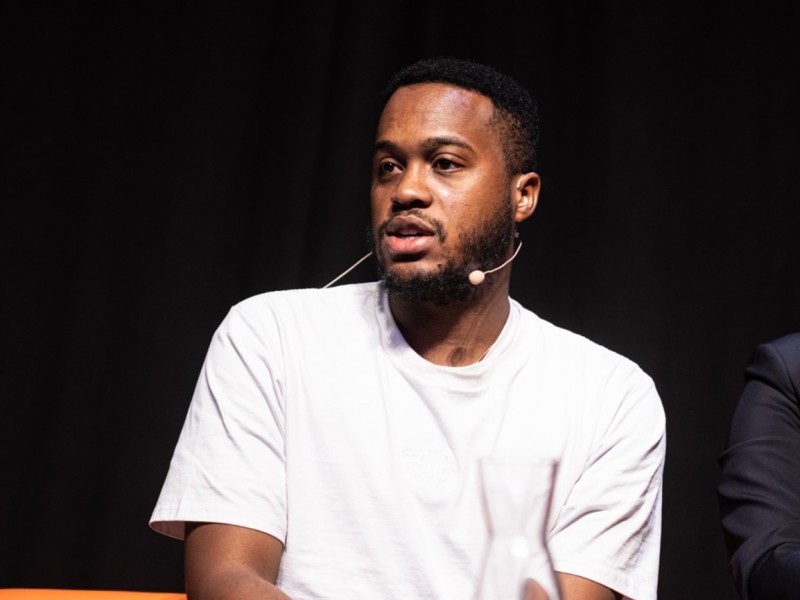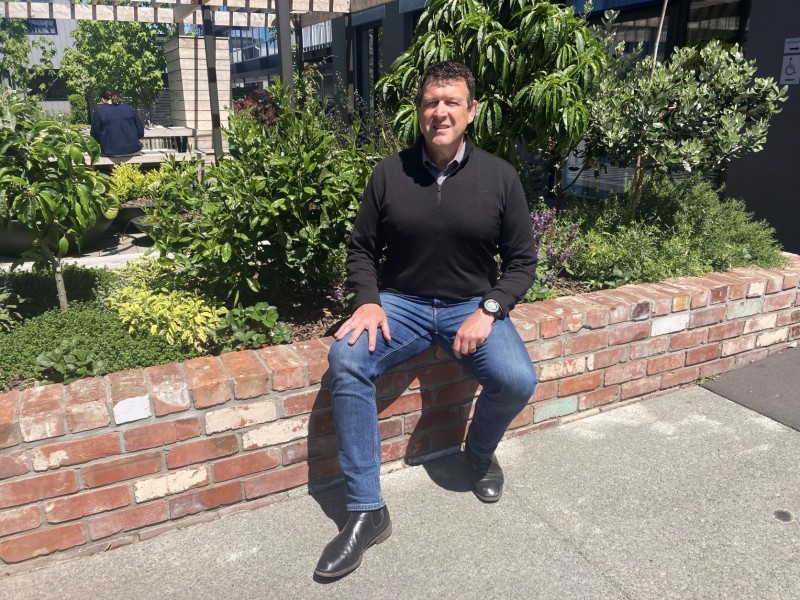PHOTO ABOVE: Kii Small
Spending the last eight years in Wellington, he thinks many urban places have a privilege to question the binary and social constructs that men live around.
“I know a lot of young men who are dealing with that same question in urban senses,” he says. “They get to decide when they become a man. When we were growing up rurally, you were a man.”
Kii believes urban and rural men can often have a different list of priorities. Once you’re in the urban centres, he says there’s a large privilege in understanding diversity and breaking down social constructs. But rurally, he explains, you don’t have time.
Kii says they deal with different issues, and since he’s been living in the city he’s noticed the disconnection between definitions of manhood. He says rurally, being a man is picking a trade, learning to drive, and providing food for the whānau. In the city, he’s noticed education is prioritised, sport is important, as well as a white collar career.
But like a pantry, he says everyone can cook with the ingredients they buy and prioritise. Men just serve from a different place.
Expanding on urban vs. rural, Chris says with groups such as Groundswell, there is an older masculinity clashing with what are perceived to be urban values, particularly around environmental attitudes.
Attitudes towards mental health, however, are more on the same page…it’s just an issue of getting the support.
Although a recent study found the number of men diagnosed with a mental illness is just over half that of women, 75% of suicides in New Zealand are amongst males.
Chris says although the conversation around mental health is common, it is not universal. And while strong attempts are being made in running mental health campaigns in rural areas, such as with the Rural Support Trust, some farmers are not as connected in.
In other areas such as professional sport, talk around mental health has not always been so forward.
Dave Hewett, a former rugby player, has experienced that first-hand.
A father, business owner, and former All Black living in Ōtautahi Christchurch, Dave grew up on a farm in the 70s, living a typical farming life: feeding chickens before school, rounding up the sheep when needed, and answering the party line if he was expecting a call. Rugby was something he played all his life.
Dave began his professional career in 1998 when he was 27. Playing for Canterbury, The Crusaders, and then the All Blacks, he was considered ‘an older athlete’ by the time he started.
“I was old, all the other guys were 19, hadn’t done university, didn’t have a family, maybe had a girlfriend…I was at the other end of the spectrum, I had a different perspective.”
Although he played many good games, retirement was tough. After almost a decade in professional sport, he felt like his identity had been removed.
“I was Dave Hewett the rugby player, but when I didn’t have rugby anymore, who was I?”
A husband and father to a young family, and with a marketing degree, he was grateful he had the support and something to fall back on when he was “dropped” at 36.
But, he says, it was still “bloody hard.”
He acknowledges for some, their experiences were even harder.
Dan Vickerman, an Australian rugby player, took his own life in 2017 after facing difficulties in retirement from professional sport. Like Dave, he had spent almost a decade playing on the field, but Dan was forced to retire due to a persistent injury. In the wake of his death, conversations were raised around mental health support in the transition to retirement.
Dave, who had played with Dan on the field, said his passing resonated with him.
“I never got to the stage that he obviously got to, but I understood where he was coming from. The identity thing is really hard to overcome.”
What doesn’t help, he says, is that when you retire the whole world knows. He adds, it’s not often you retire twice in your life.
Dave says after rugby he accessed support, but he didn’t know if his team mates did because they didn’t talk about it. He admits some of his close friends did talk about ‘stuff’, but they weren’t encouraged to do so like men are now.
In 2017, New Zealand rugby launched mental health and wellbeing programme HeadFirst. Four years later, coaches and management from 18 of Aotearoa’s leading rugby teams completed their Mental Health 101 training, in the hope to create an environment where staff and players feel comfortable to speak up.
Coaching for Canterbury, Crusaders, and Southland NPC, Dave tried to step into that supportive role himself. But during his time as coach between 2007 and 2019, he believed there was still a stigma attached to opening up. He says the problem is that a lot of players don’t access support until it’s too late, and although you can lead them to water, you can’t make them drink.
“They’ve got to want to do it,” he says.
In and outside of rugby, he thinks communication within his generation is getting better.


